Continue to tell the story of India in Chinese
India has always been a little-known topic in the Chinese community. Whether it is India as a country, or Indians or Indians of Indian descent, most Chinese have an inexplicable contempt for it. Is it because India is poor? Because Indians have dark skin? Because they have been bombarded with negative news about India for a long time?
The core premise for generating objective evaluations is the recognition of facts or truths. Unfortunately, based on my experience as an "Indian window" on the Internet for more than a decade, I believe that there are very few facts or truths related to India that can be learned in the Chinese community, and relatively objective analysis and comments are even rarer.
I understand why the public tends to focus on economically developed Europe and the United States, and I also understand why the intellectual circle tends to explore the development of social processes centered on European culture.
but--
1. The Indian peninsula is rich, has a long history, and is multi-ethnic and multi-cultural. Since ancient times, it has been the immigration terminal for foreign people from seven continents and five oceans. It is known as the "World Ethnological Museum" and the "World Ethnological Hodgepodge";
2. "Hinduism" is the oldest religion in the world that still exists today. Rather than being a "religion", it is more of a spiritual way of thinking and existence, a way of life. In this way of life, individuals are encouraged to seek their own independent pursuit of the spiritual world;
3. Precisely because "Hinduism" is just a way of life, rather than a specific and solidified belief system, independent individuals who pursue spiritual sublimation in the Indian peninsula have been given great freedom since ancient times. Indians believe whatever they want and believe however they want. Everyone's meditation and yoga are his/her dance in his/her own world, and he/she talks to the gods he/she imagines. Over thousands of years, the Indian folk have created countless goddesses, gods, animal gods and saints. It's okay for you to regard a stone or a tree as the greatest belief in your life. There are many nationalities, races and beliefs, which are intertwined and coexist. Therefore, the deepest essence of Indian culture is diversity and inclusiveness. It can be said to be a rare holy land of spiritual freedom in the world;
4. Both China and India are ancient oriental civilizations, and are highly comparable. China and India have had many exchanges since ancient times, China has been greatly influenced by Indian culture, and Buddhism originated in India, etc.
Should Chinese people learn about India? Of course they should! Understanding India will help us understand the history of Chinese people. After thousands of years of ups and downs, a large part of it is more or less intertwined with India. Understanding the diversity and inclusiveness in Indian cultural DNA will help us reflect on the diversity and inclusiveness in our own culture, whether it is to explore the diversity of the original culture of China or to study the process of being influenced by Indian culture. Understanding the diversity of our own culture from the root will help us not get lost in various social deduction theories centered on European culture, and we can imagine a social deduction blueprint suitable for Eastern civilization, especially Chinese civilization.
So I decided to come back and continue writing in Chinese to share my learning and thinking. Life is a mysterious journey of exploration. Meeting India was destiny, but the pursuit of truth and knowledge, and the exploration of the strange world require courage and undying passion. Let's encourage each other.
Share some photos of our family celebrating Durga Puja, Fortune Puja and Diwali this year
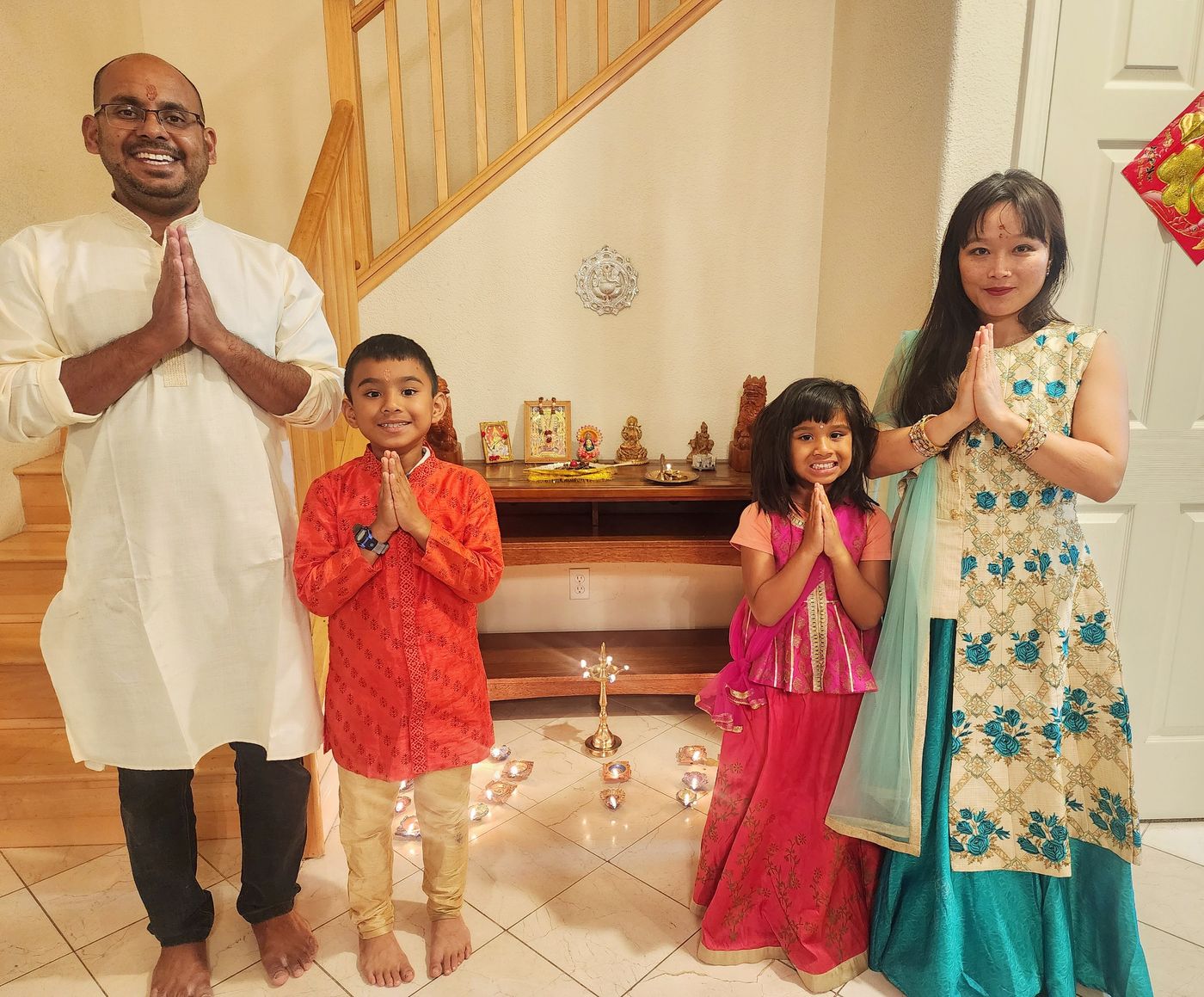
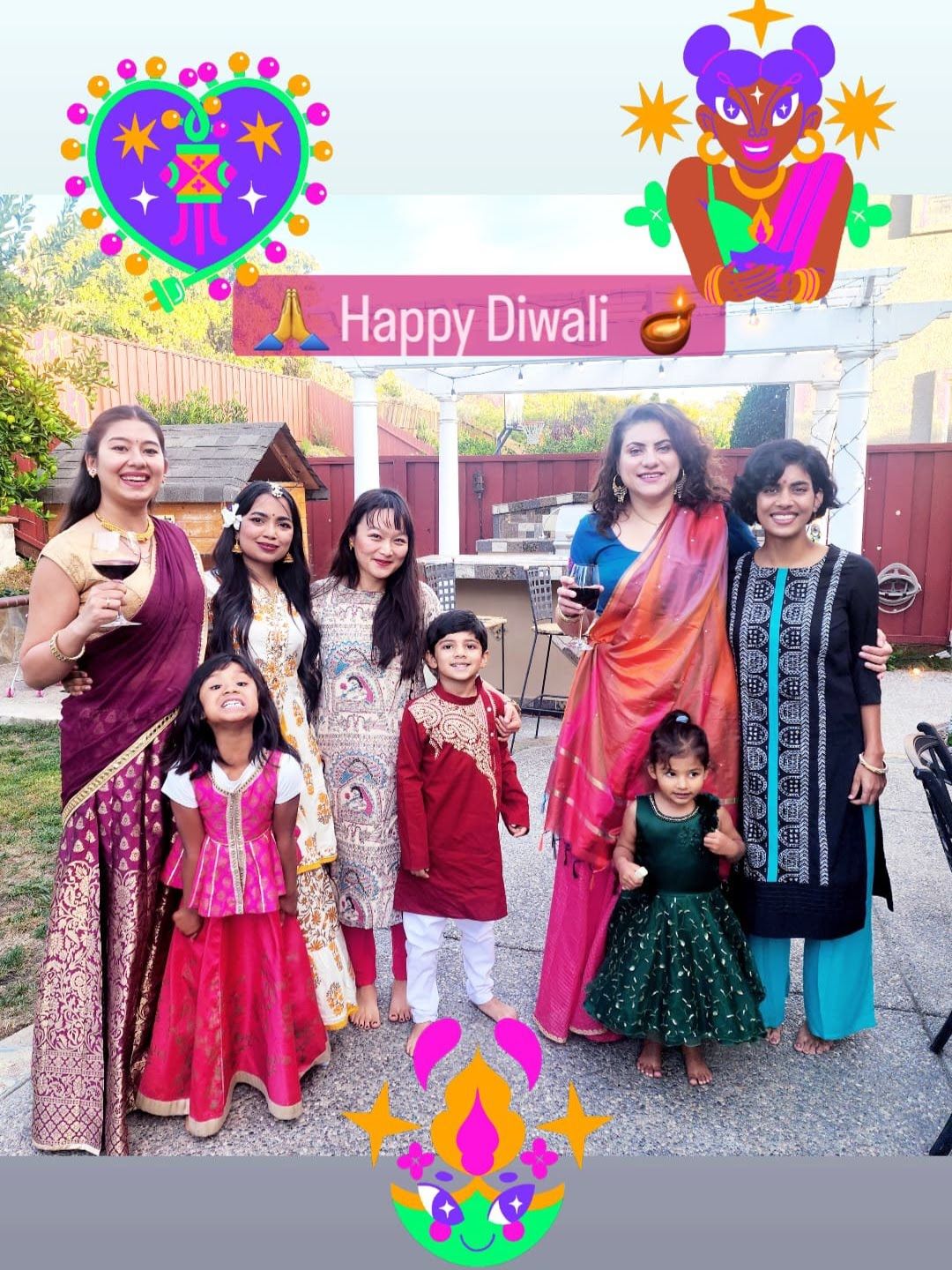
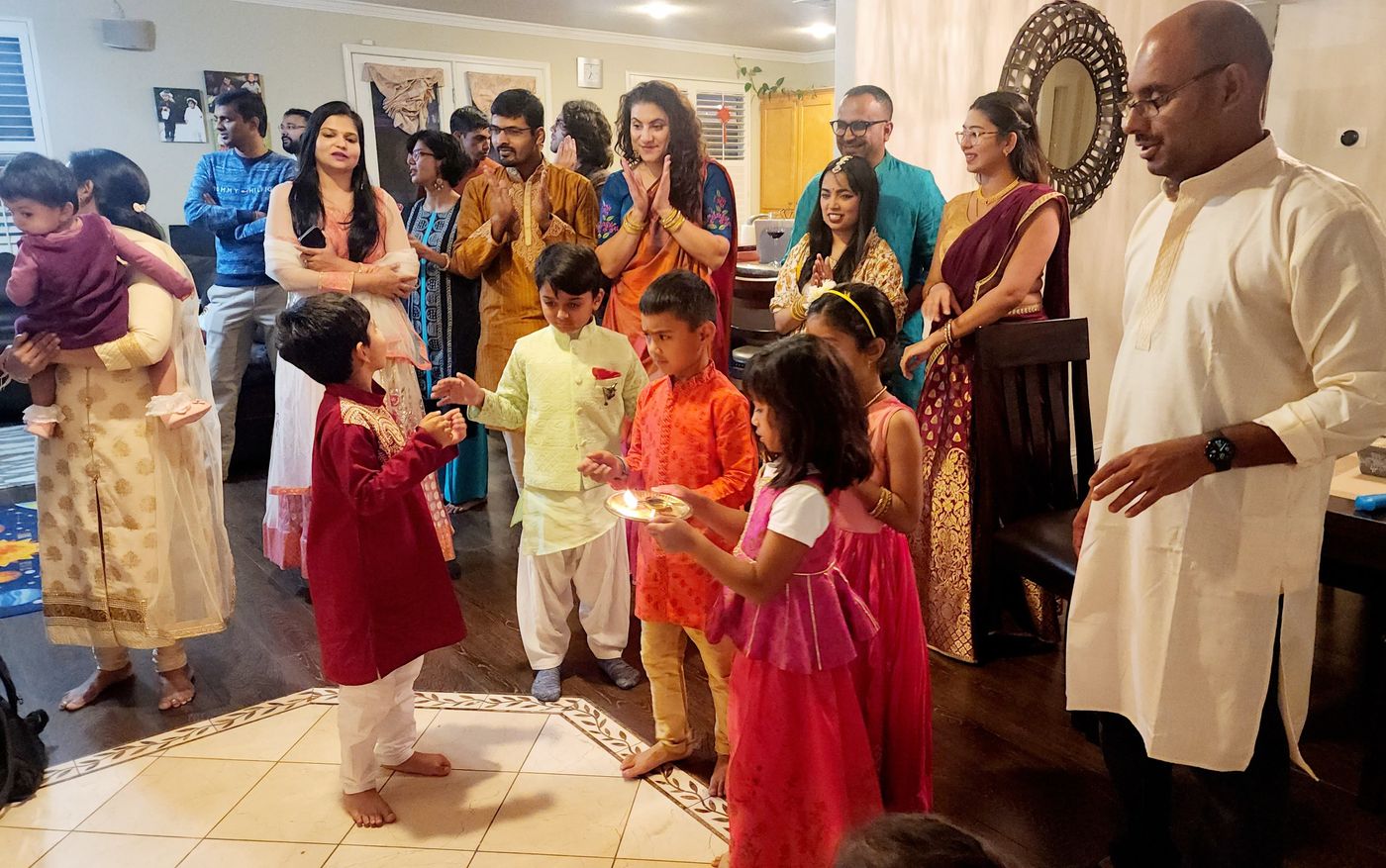
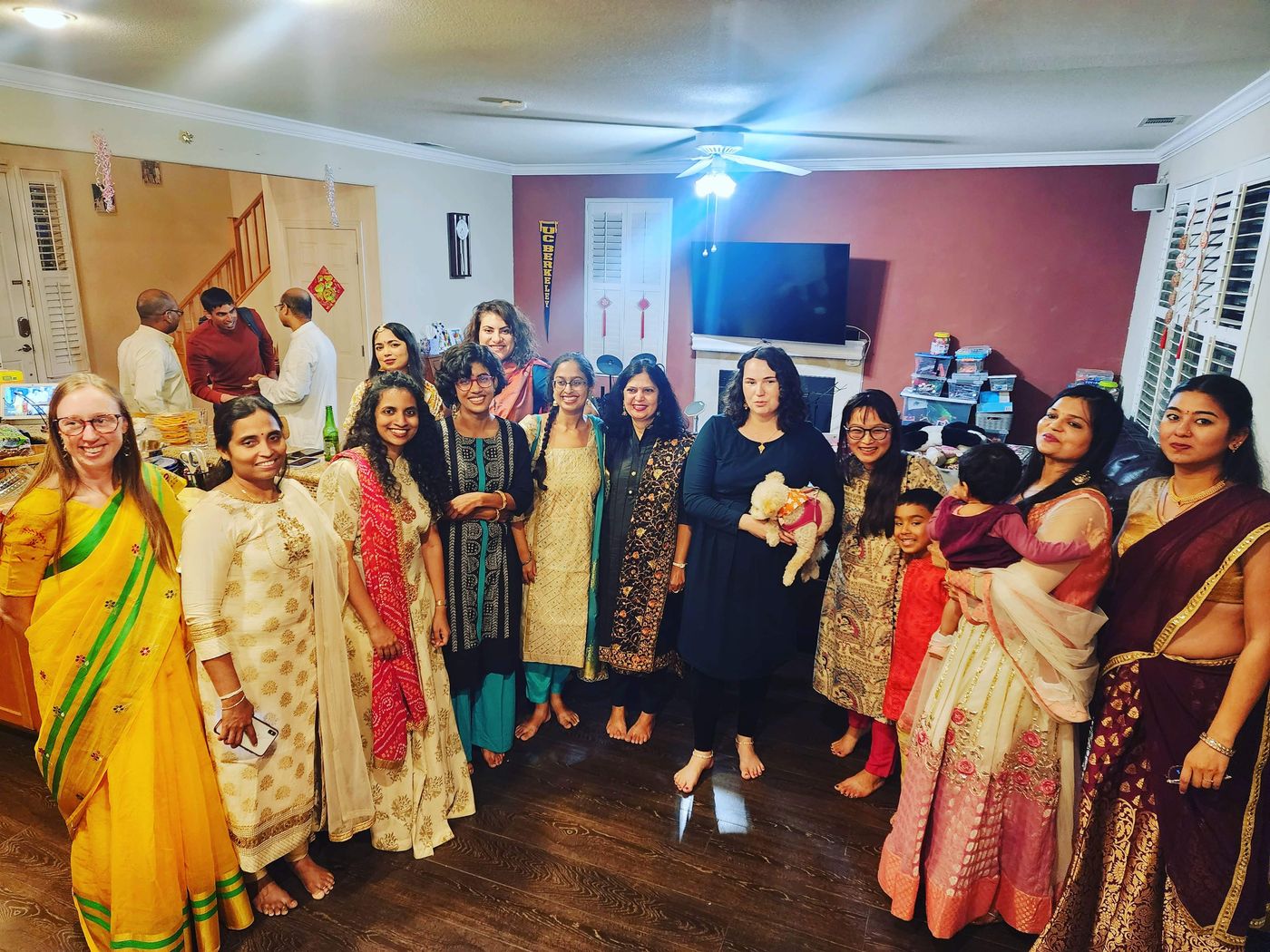
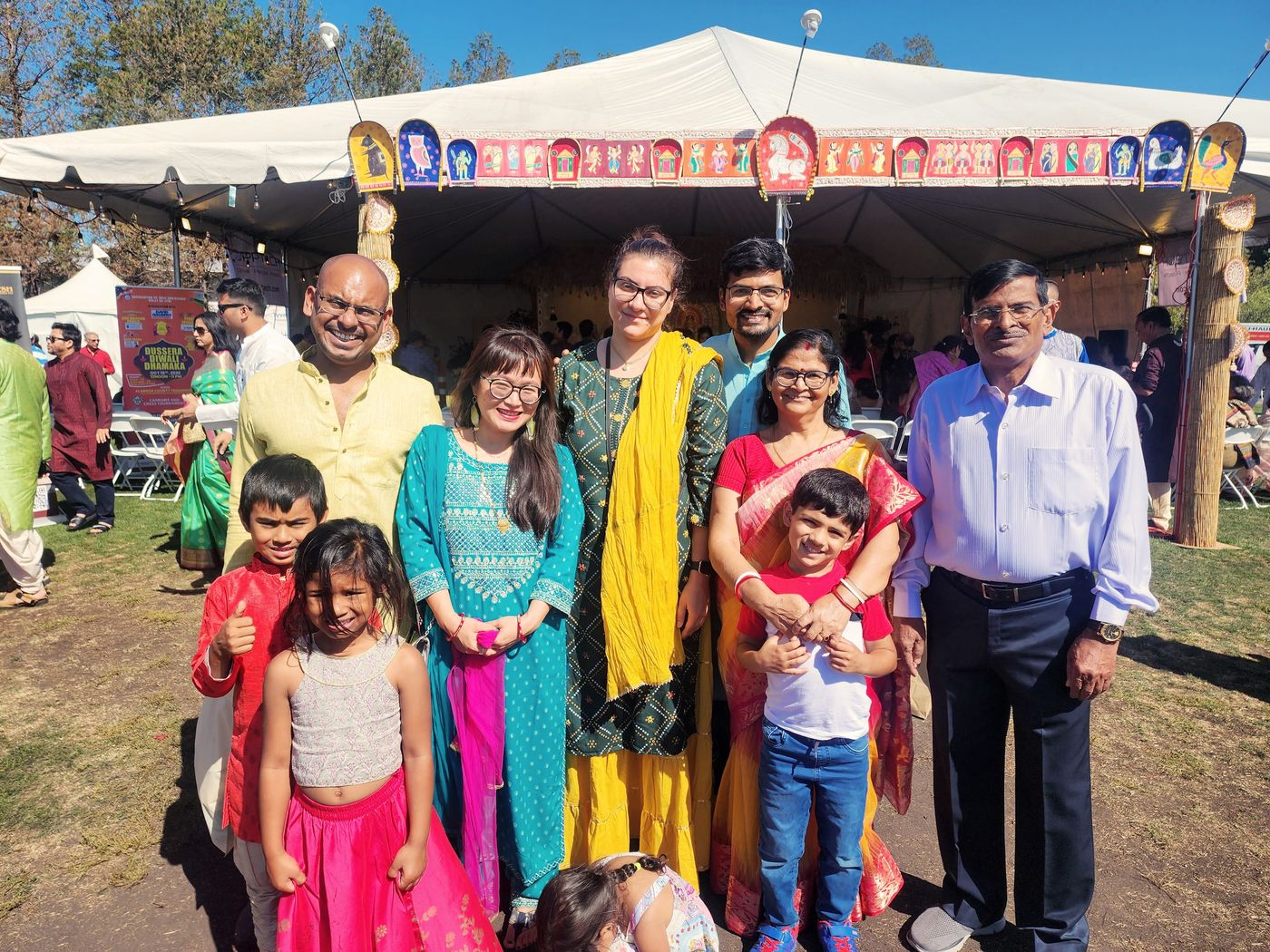
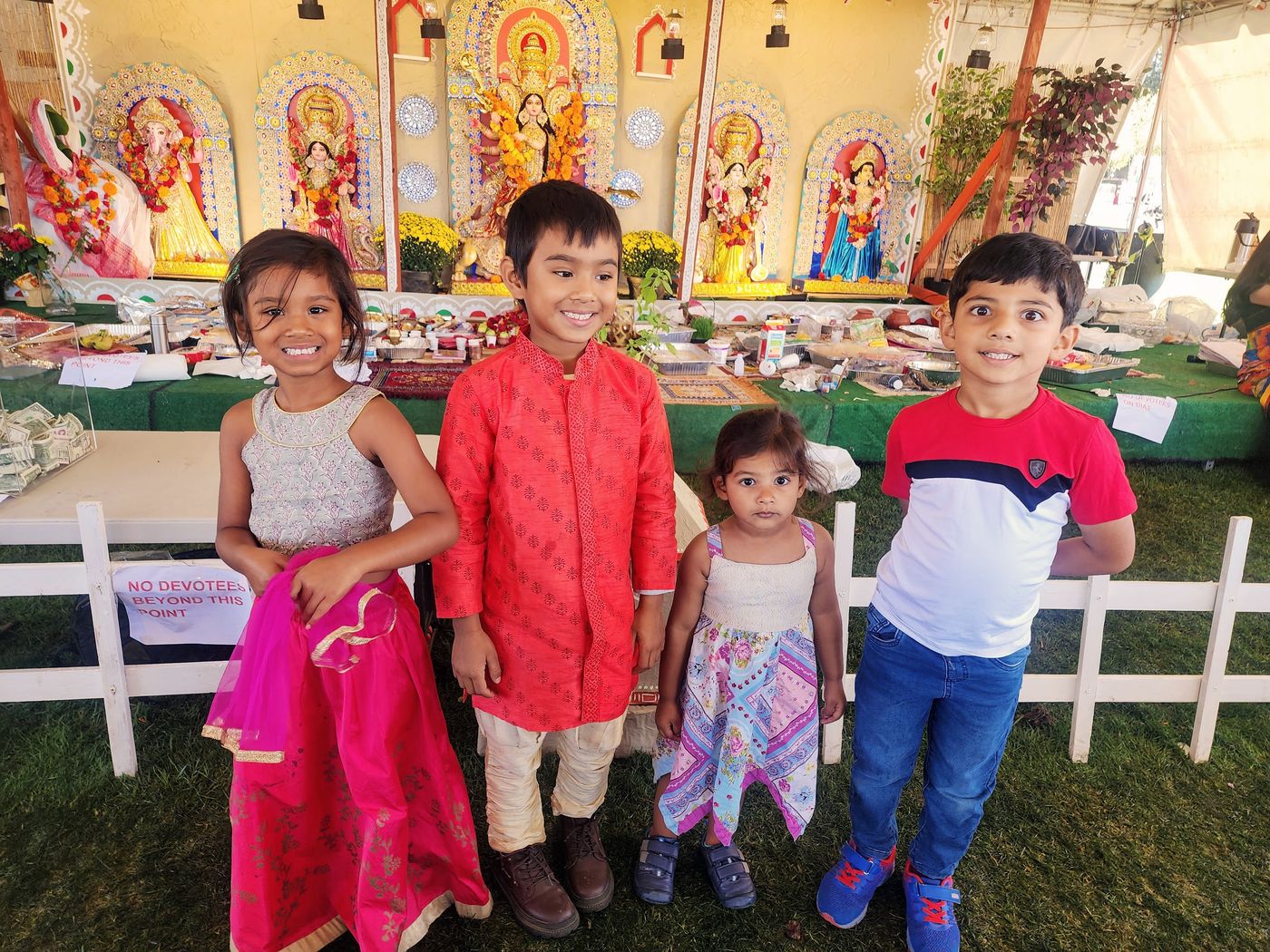
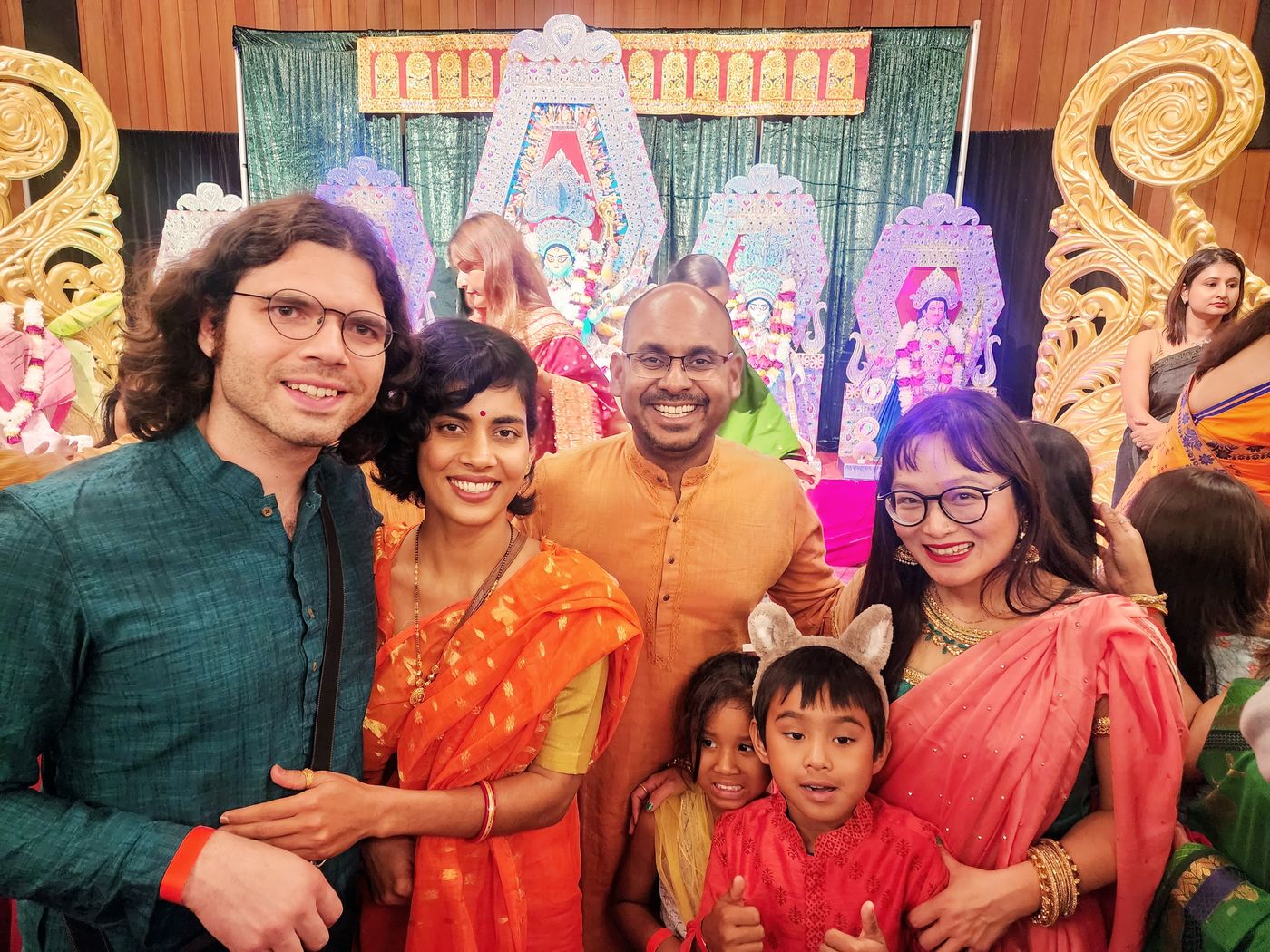
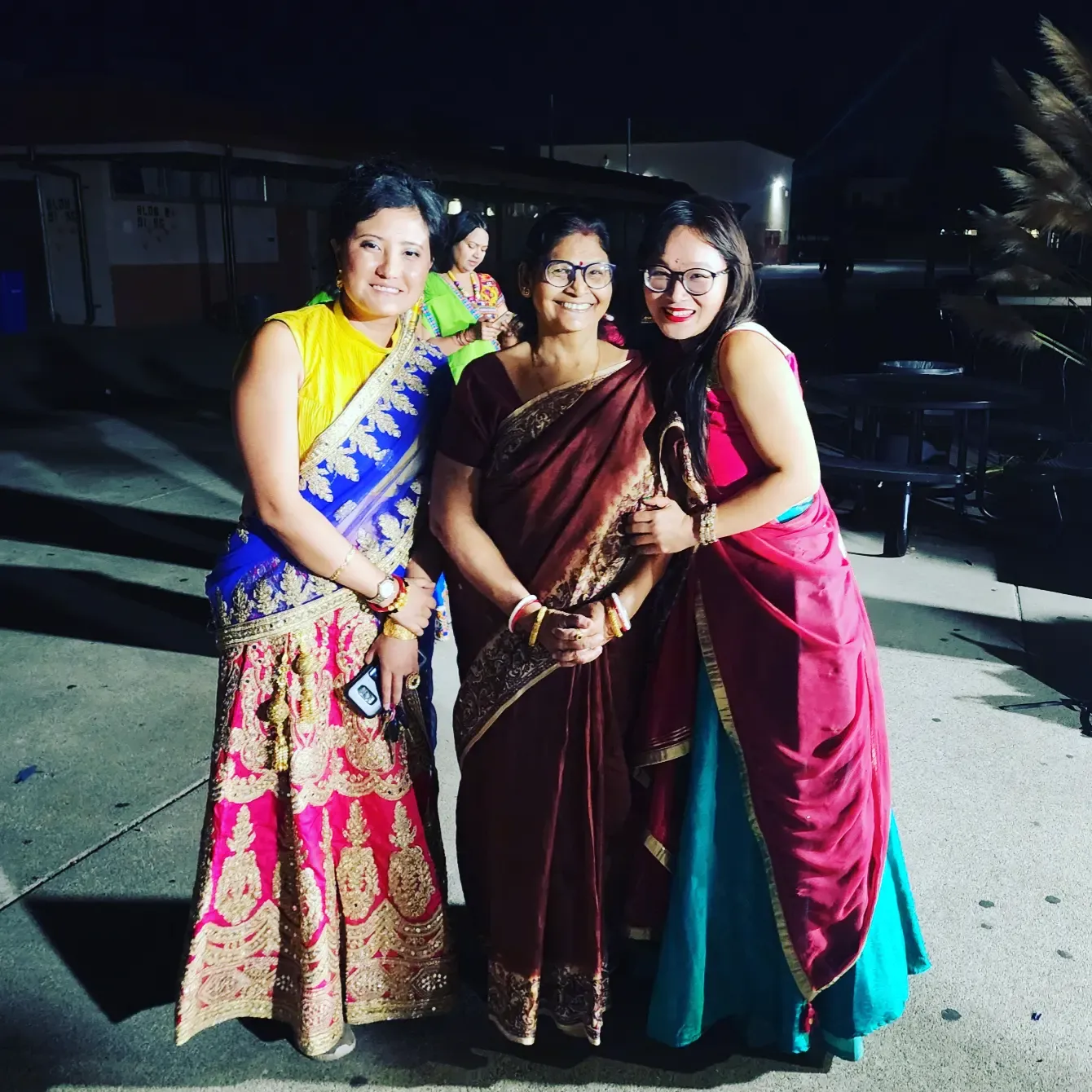
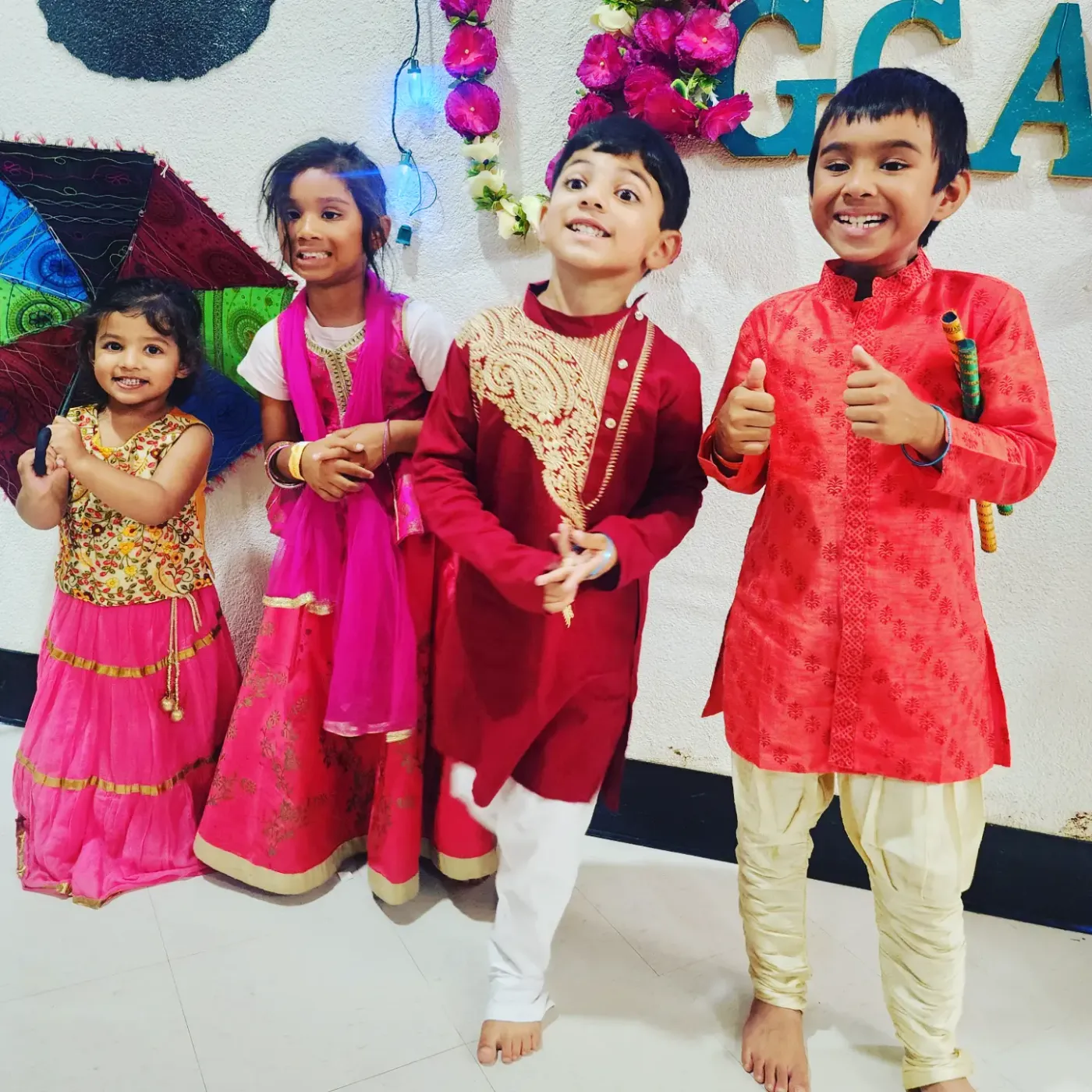
Like my work? Don't forget to support and clap, let me know that you are with me on the road of creation. Keep this enthusiasm together!


